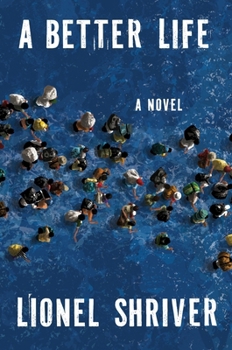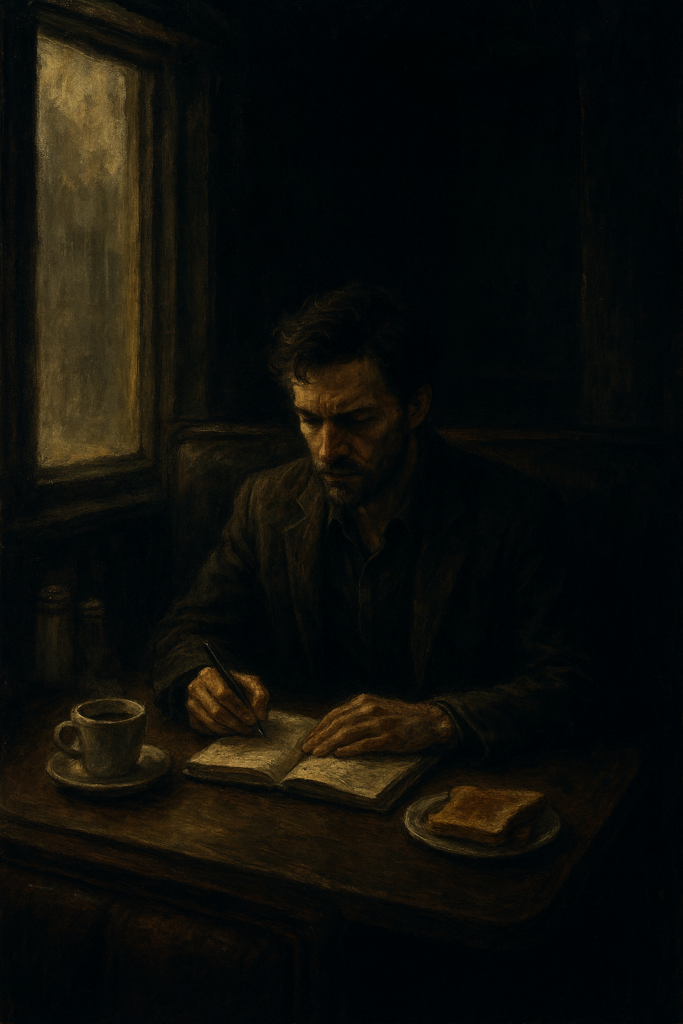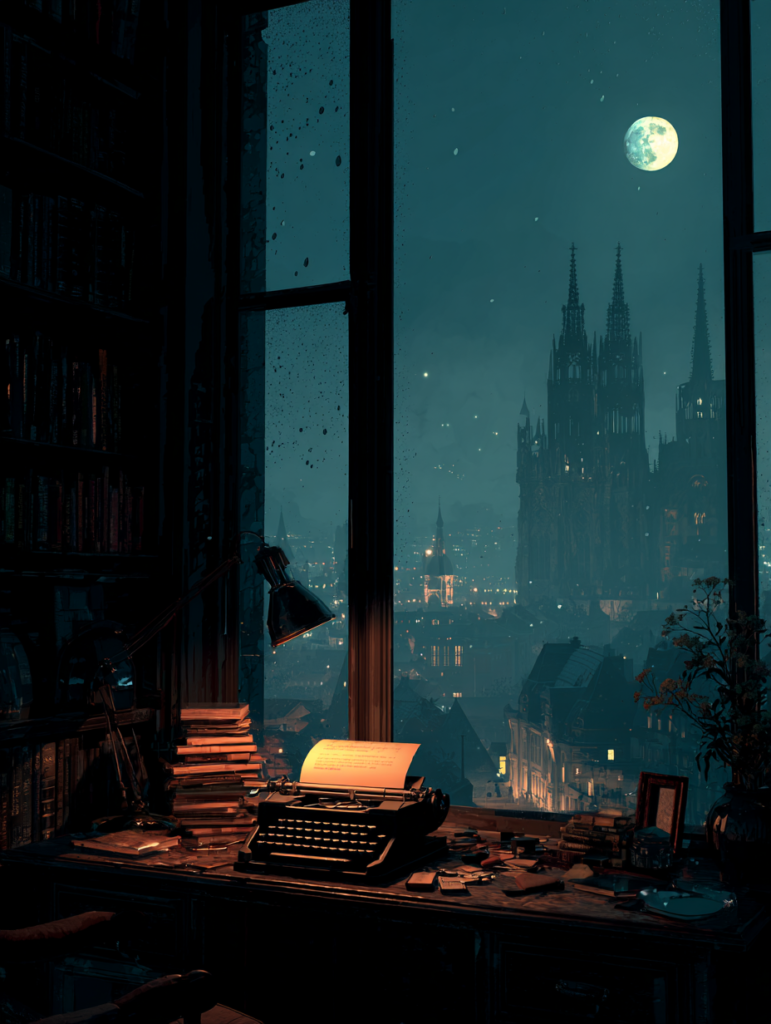
A Better Life
Lionel Shriver
Harper, February 2026
(304 pages of unfiltered badassery)
Straight up, dear reader, I love this book. Something finally that has the balls to ask all the seemingly unasked questions this rotten culture has been dodging since the borders started bleeding sympathy and the headlines turned into a perpetual guilt trip.
You know that moment when the polite liberal dinner party – candles flickering, everyone nodding along to the gospel of compassion while secretly calculating the equity in their house perched on “stolen” land – you know that moment when someone finally says the quiet part out loud, the part about how maybe, just maybe, inviting the whole world into your foyer isn’t an act of saintliness but a slow-motion home invasion dressed up in humanitarian drag? Lionel Shriver doesn’t just say it…she loads it into a cannon, lights the fuse with a grin, and blows the whole goddamn table to kingdom come. And then she rebuilds the rubble into a mirror, forcing you to stare at your own complicit reflection.
A Better Life is the novel we’ve been waiting for since the first cargo plane full of South American illegals touched down in 2022 and the talking heads started competing to see who could furrow their brow the deepest while explaining why borders are just lines on a map drawn by evil white men. Shriver, one of my favorite contrarians, a walking provocation in sensible shoes, takes the premise – an actual proposal (never implemented, thank Christ) from New York’s idiot mayor to pay citizens $110 a day to billet asylum seekers in their own homes – and turns it into a domestic siege thriller that reads like a paranoid yuppie fever dream crossed with the sharpest satire since American Psycho decided to get political, turning her character Gloria’s sprawling Queen Anne in Ditmas Park into a bloated, creaking metaphor for the United States itself: a once-grand edifice, built on borrowed glory, now sagging under the weight of its own open-door illusions, rooms filling with strangers while the original inhabitants squabble over the thermostat and pretend everything’s fine.
I’m getting ahead of myself here. So assuming my dear reader hasn’t read it yet:
Gloria Bonaventura, 62, freshly divorced from a husband who bolted for greener pastures (or maybe just a condo without drafts), flush with this inherited pile that’s more liability than legacy – she decides she’s going to Do The Right Thing. Signs up for Big Apple, Big Heart (the program’s actual Orwellian moniker – Shriver doesn’t invent: she transcribes), and welcomes Martine Salgado, Honduran, soft-spoken, saintly-eyed, into the house. Martine is helpful. Martine is grateful. Martine cooks pupusas that make Gloria’s mouth water and her conscience sing. Martine charms Gloria’s adult daughters, all childless themselves, drifting through their forties and fifties like ghosts in the machine of delayed adulthood: one a corporate drone too busy climbing ladders to procreate, another an artist chasing grants instead of legacy, the third a perpetual grad student pondering the ethics of reproduction in a warming world. They’re all barren branches on the family tree, a subtle Shriver jab at how the West’s fertility drought leaves us wide open to demographic takeovers, our houses – and nations – echoing with the footsteps of others’ offspring.
And then there’s Nico, Gloria’s 26-year-old son, the basement-dwelling slacker with a philosophy degree gathering dust and a vape habit that’s his only reliable companion. Nico smells the rat from day one, but here’s the genius twist: he can’t quite articulate why. It’s not racism…it’s this gnawing, inchoate dread, a confusion that manifests in stammered objections and half-formed rants about “boundaries” and “sustainability” that Gloria waves off as millennial entitlement. Nico paces the halls, watching Martine’s brother Domingo show up unannounced, then Domingo’s “associates,” then a cousin or two, the house swelling like a balloon about to pop. He senses the wrongness – the way goodwill curdles into obligation, how one act of kindness metastasizes into a full-scale occupation – but every time he tries to voice it, it comes out muddled, drowned in Gloria’s platitudes about empathy and shared humanity. It’s Shriver’s cruelest cut: Nico’s impotence mirrors our own cultural paralysis, where calling out the erosion feels like shouting into a void lined with accusations of bigotry.
What follows is a masterclass in escalation, plot twisting like a knife in the brainstem. Martine’s sob story about kidnapped children back home, a $30,000 ransom demanded by shadowy cartels. Gloria’s frantic scramble to wire money she doesn’t have, dipping into retirement funds while her house (the metaphor ramps up here) starts to resemble America writ small: porous borders (that unlocked back door), overburdened resources (the fridge emptying faster than it fills), cultural clashes (Domingo’s crew blasting reggaeton while Gloria’s classical records gather dust), and a host of uninvited guests who arrive with needs that multiply like unchecked deficits. The daughters pop in, coo over the “diversity,” then vanish back to their sterile apartments, leaving Gloria to foot the bill. Nico tries to rally, but his warnings fall flat – too vague, too hesitant, too afraid of sounding like the villain in his own story.
Shriver’s immigration themes aren’t preached as much as they are vivisected. She leans hard into the paralysis of her characters, especially Gloria’s fatal flaw: her inability – or unwillingness – to actually do anything to stop the unraveling. Gloria could call the authorities, could draw a line, could say “enough” when the living room turns into a dormitory and the utilities spike like a national debt crisis. But she doesn’t. Why? Because that would make her the bad guy, the one who turns away the huddled masses. Shriver skewers this with surgical glee: it’s the liberal elite’s Achilles’ heel, this ridiculous addiction to moral vanity, where virtue-signaling trumps self-preservation. The house-as-America metaphor hits peak resonance as the foundation cracks – literally, in one scene where an overloaded beam groans under the weight – symbolizing how unchecked influx strains infrastructure, dilutes identity, and leaves the hosts depleted, their own progeny absence or ineffective. Shriver doesn’t demonize the migrants; Martine and her kin are survivors, opportunists in a Darwinian game, playing the system because the system invited them to. The tragedy is in the hosts’ complicity, their failure to act until the locks are changed from the inside.
In an era when every novel about immigration either weeps piously or screams nativist slogans, A Better Life does something rarer: it laughs while the house burns down, then hands you the matches and asks if you’d like to roast something over the flames. It exposes the hypocrisy of open borders from the comfort of gated communities, the way good intentions pave the road to domestic apocalypse, and how our collective Nico-like confusion – knowing something’s off but choking on the words – dooms us to watch it all unfold.
This is a book that will make people throw it across the room, then pick it up again because they have to know how far she’ll push it. It’s cruel, it’s funny, it’s terrifyingly smart. It’s Lionel Shriver saying, once again, that reality doesn’t give a shit about your feelings, and neither does she.
Buy it. Read it. Argue about it in bars until someone punches someone else. Then read it again, and wonder why your own house feels a little less secure.
Five stars, no footnotes required. Though it I were forced to append one, it would be: finally, someone had the balls to write the ending we all knew was coming, where inaction is the real invasion.
N.P.: “Immigrant Song” – Super Sonic Temple





